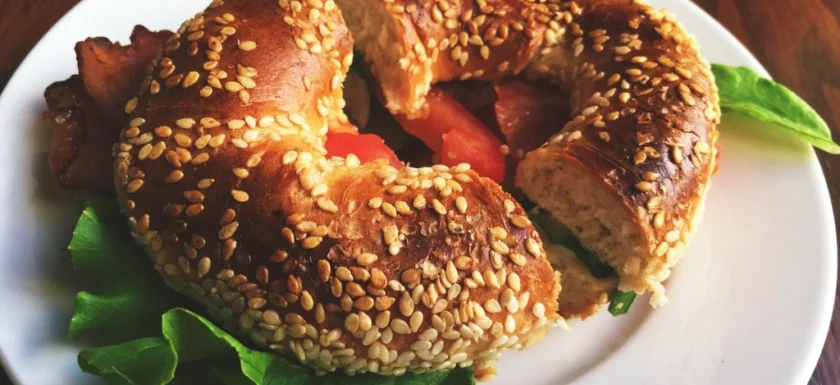I enjoy a good bagel, and I enjoy a news story that promises to illustrate several social psychological principles. When the headline reads “The Hole in This Bagel Shop’s Business Model? It’s Too Popular” (Balk, 2024), I’m in.
Apollo Bagels in New York City’s West village has become so popular that the lines stretch to 100 feet. And that was before the November 30, 2024 New York Times story.
After covering the social psychology chapter in Intro Psych, ask your students to read the story (the link is gifted to you, so your students do not need a New York Times account). And, then, as your students to work in small groups to answer these questions.
- One patron said, “If it’s gone viral on Instagram, I’ve stood in the line and waited for it.” Which of Robert Cialdini’s six principles of persuasion best account for this behavior: reciprocity, scarcity, authority, commitment and consistency, liking, consensus? Explain.
- The article states that there is a chance that Apollo’s Bagels will be evicted from this location. What does the persuasion principle of scarcity will predict will happen with the lines? Will they get longer, shorter, or no change? Explain.
- After standing in line, a patron declared that the bagel she purchased was “phenomenal.” From the story, we don’t know how long she waited in line, but let’s imagine she waited 20 minutes. Explain how cognitive dissonance could have made an objectively average bagel exceptionally good.
- In the comments to the article, Daneil Kfoury wrote on November 30, 2024, “I don’t love waiting in lines, but I am from Texas, and we wait in line for great BBQ. It’s part of the experience. It’s a wonderful opportunity to mingle with strangers you may never mix with and experience humanity.” Explain Kfoury’s comments in terms of ingroups.
For the AI-conscious, ChatGPT nailed questions 1, 2, 3, but whiffed on 4.
If you’d like to incorporate AI, ask students in their groups to use AI to answer the questions and then critique AI’s responses based on what they’ve learned in class about these concepts (Costa et al., 2024). These same instructions would also work as a solo take-home assignment.
References
Balk, T. (2024, November 30). A hole in apollo bagels’ business model? It’s too popular. The New York Times. https://www.nytimes.com/2024/11/30/nyregion/apollo-bagels-nyc.html
Costa, C., Husain-Habib, N., & Reiter, A. (2024). Integrating ai into education: Successful strategies, ideas, and tools from psychology instructors. Teaching of Psychology, 00986283241297635. https://doi.org/10.1177/00986283241297635
[The attached photo is not of an Apollo Bagels bagel, as far as I know.]


